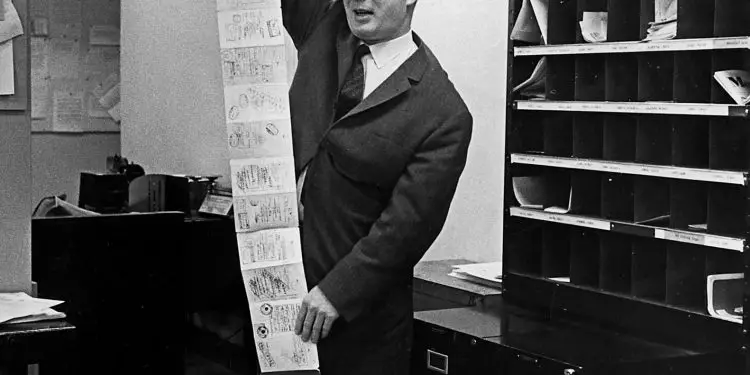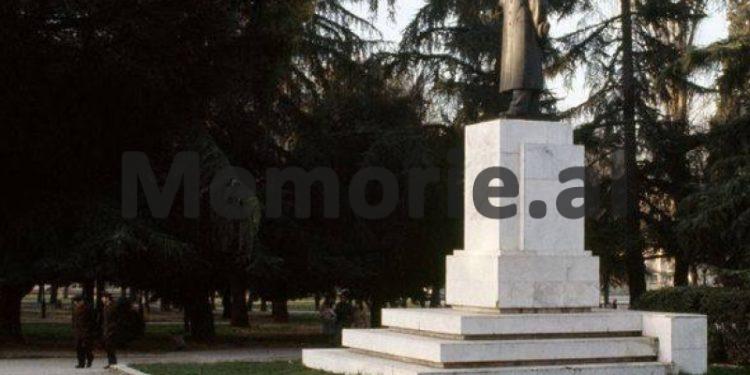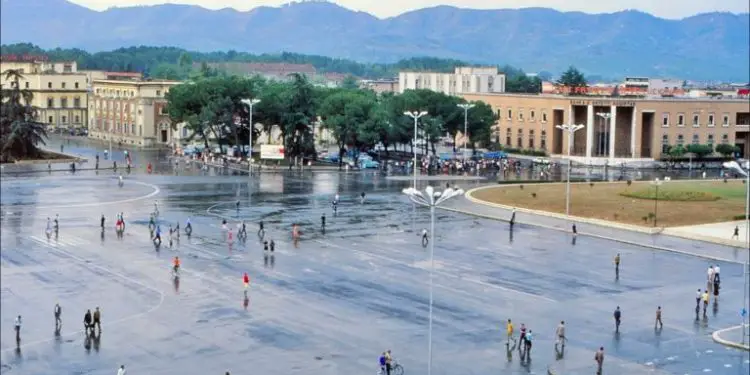By DAVID BINDER
Memorie.al / Albania announced today a series of laws that could bring the most extensive liberalization in most European communist countries. These include measures for free movement across borders and the return of the right to practice religion. Albania is the only country in the world that has legally banned all religious beliefs and closed all places of worship. In these last four months, the Albanian leadership has extended the hand of cooperation with Western Europe, the USA and the Soviet Union, to get itself out of the long period of isolation.
Meanwhile, Albania has improved its relations in recent years with West Germany, France, Italy and other countries of the West and has begun in these last four weeks to consider resuming relations with the United States and the Soviet Union.
The visit of the UN leader
Recently, Albania has not only proposed relations with the European Community, but also to participate in the Conference on Security and Cooperation in Europe (OSCE). On Friday, UN Secretary General Javier Perez de Cuellar will arrive for a 24-hour visit to Albania, the first of its kind.
For the first time in decades, journalists from the Soviet Union and the United States were invited. This gives the signs of revival of the belief that Albania is trying to play an active role in the international community.
The legal additions to the criminal and justice systems, as well as other issues, were unanimously approved by the Parliamentary Assembly on Tuesday evening and were announced today by the Albanian Telegraphic Agency. Albanian parliamentarians have expressed themselves in favor of the laws, as never before, in their vote.
The right to travel
For ordinary citizens who have been forbidden to travel abroad, since Albania was included under the communist system at the end of 1944, apparently, the right to travel is the most significant of the measures taken.
In a report to the Assembly, Deputy Prime Minister Manush Muftiu spoke about a law according to which, upon request, every Albanian citizen will have the right to obtain a passport and travel anywhere. “It is not clear when the regulation will take effect”, said the Mufti.
Also, the Assembly reduced the number of capital crimes and approved a law that manages to remove criminal penalties for attempts to escape across borders.
Hundreds of Albanians have fled in the last four decades, while a large number of people have been killed, as they tried to leave the state border of communist Albania.
Mr. Myftiu, who is 71 years old, said that; from now on “desertion”, which was a crime, will not be considered as “treason against the motherland”.
Isolation
Albania has been a rebel state in the communist world for several years. Initially, it was a close ally of the Soviet Union, since it severed relations with its Yugoslav neighbor in 1948, when Tito broke with Stalin.
After the death of Stalin, in 1953, Albania opposed the liberalizing tendencies in the Soviet Union. It severed relations with Moscow in 1961 and joined China, after the gap that was created between Beijing and Moscow.
The alliance between Albania and China faded after the rapprochement between Washington and Beijing in 1972 and was further destroyed when Mao Zedong died in 1976. Later, for several years, Albania remained almost completely isolated from the rest of the world.
Stalin is still revered
The regime of President Ramiz Alia had not yet made it clear how the country’s 3.3-million inhabitants would achieve their rights with the new laws.
Since 1944, the rights of individuals have been dictated by high centralized structures modeled after Stalin, whose statue stood opposite Lenin’s on the capital’s main boulevard.
Westerners who live here say that they believe that Mr. Alia is awakening a campaign of liberalization against the force of power, which would have built the system since the time of his predecessor, Enver Hoxha.
One of them says that; “there is a divisive war going on”. “The punishment that was foreseen for religious propaganda has been removed. He said that: “the issue of religious belief is a problem that belongs to the conscience of every individual”.
Mr. Myftiu said that Albania will continue to support “atheist propaganda”. His stance does not make clear how Muslims, Catholics and Orthodox will be able to resume practicing their religious beliefs.
Before the advent of the communist system, Albania had a population of about 70% Muslim, 20% Orthodox and 10% Catholic.
Changes in the Criminal Code
In its two-day session, the People’s Assembly devoted itself to changes in the Criminal Code. They include a reduction of the sentence of persons sentenced to death, from 34, to 11 years.
Crimes will still be punishable by death, for criminal offenses such as; “treason against the fatherland and espionage, terrorist activities and sabotage, appropriation of socialist property under special conditions, robbery of socialist property and murder”.
The Parliament also decided that Albanian women, in most cases, will not be given capital punishment. In the framework of justice reforms, the Parliament approved the order of Enver Halil, member of the Central Committee of the Communist Party and Minister of Justice. The mufti said that; “he is directed to the creation of a new judicial system and legal representation of the defense (lawyer).
Although the ban on religion has apparently been lifted, a traveler who made a 100-mile excursion from the Yugoslav border at Hani e Hoti to the capital today found only one place of worship, a mosque in the center of Tirana, which has been turned in a museum.
Views inside the country
A visitor to Albania finds views on some streets that remind of the beginning of this century. The fields appear to be well maintained, with the work being done by groups of men and women with shovels, pitchforks and hoes. There are herds of sheep, goats and cows on the road.
As you drive along the highway, from the border to Tirana, you see hundreds, even thousands of Albanians standing or running, as well as a series of empty bunkers, lined up one after the other.
Traffic through the country’s roads, from the border to the capital, there are 30-year-old trucks, as well as hundreds of carts, where perhaps half of them are pulled by donkeys, but there are almost no cars. Memorie.al
The article was published on May 10, 1990
The title is editorial
Prepared by: Albert Gjoka














